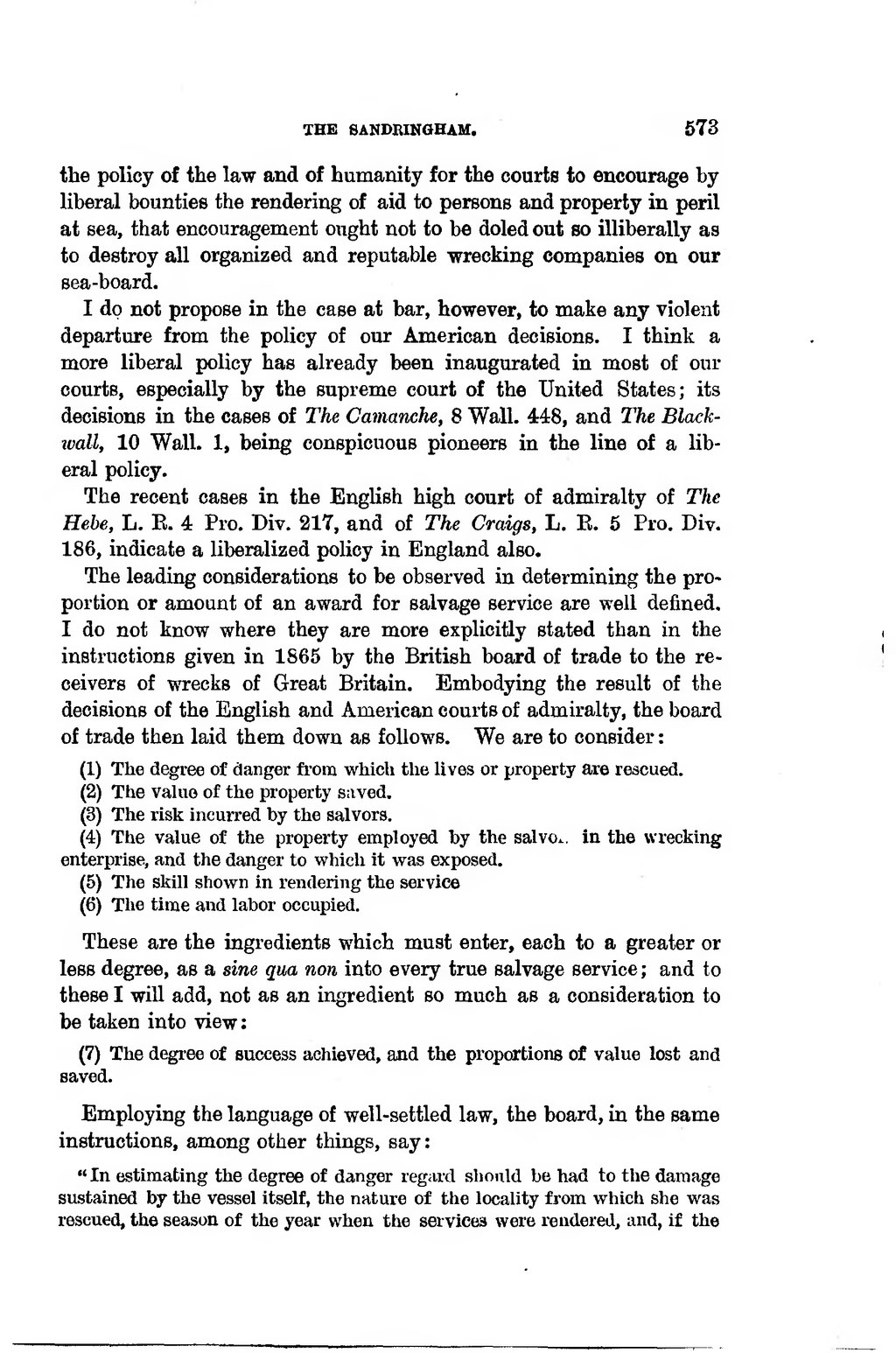THE SAKDBINQHAM. 573 �the policy of the law and of humanity for the courts to encourage by liberal bounties the rendering of aid to persons and property in peril at sea, that encouragement ought not to be doled out so illiberally as to destroy all organized and reputable -wreoking companies on our sea-board. �I dp not propose in the case at bar, however, to make any violent departure from the policy of our American decisions. I think a more liberal policy bas already been inaugurated in most of our courts, especially by the supreme court of the United States; its decisions in the cases of The Camanche, 8 Wall. 448, and The Black- wall, 10 Wall. 1, being conspicuous pioneers in the Une of a lib- eral policy. �The recent cases in the English high court of admiralty of The Hebe, L. E. 4 Pro. Div. 217, and of The Craigs, L. E. 5 Pro. Div. 186, indicate a liberalized policy in England also. �The leading considerations to be observed in determining the pro- portion or amount of an award for salvage service are well defined. I do not know where they are more explicitly stated than in the instructions given in 1865 by the British board of trade to the re- ceivers of wrecks of Great Britain. Embodying the resuit of the decisions of the English and American courts of admiralty, the board of trade then laid them dowu as follows. We are to consider : �(1) The degree of danger from which the lives or property are rescued. �(2) The vahio of the property saved. �(3) The risk incurred by the salvors. �(4) The value of the property employed by the salvo., in the wrecking enterprise, and the danger to which it was exposed. �(5) The skill shown in rendering the service �(6) The time and labor occupied. �These are the ingredients which must enter, each to a greater or less degree, as a sine qua non into every true salvage service; and to these I will add, not as an ingredient so much as a consideration to be taken into view : �(7) The degree of success achieved, and the proportions of value lost and saved. �Employing the language of well-settled law, the board, in the same instructions, among other things, say : �"In estimating the degree of danger regard shonld be had to the damage sustained by the vessel itself, the nature of the locality from which she was rescued, the season of the year when the services were rendered, and, if the ��� �
